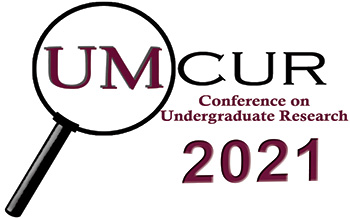Project Type
Presentation
Faculty Mentor’s Full Name
Yinloklinus (Linus) Chan
Faculty Mentor’s Department
Psychology
Abstract / Artist's Statement
Tavits and Pérez discovered that usage of gender-neutral pronouns in Sweden correlated with higher acceptance of women and LGBTQ+ individuals, and I decided to see if that effect could be replicated in the USA. In this study, I am replicating Tavits and Pérez’s 2019 study, “Language influences mass opinion toward gender and LGBT equality.” I surveyed a sample of 161 individuals and gave them a priming task where they had to write a few sentences using an assigned set of pronouns. The assigned pronouns were he/him, she/her, they/them, and ze/zir. After that, participants were asked to write about a hypothetical person running for political office using whatever pronouns they chose, and were asked a number of questions about their political beliefs, particularly regarding LGBTQ+ individuals. In Tavits and Perez’s study, being primed with a feminine or gender-neutral pronoun correlated positively with feminine and gender-neutral pronouns used for someone running for office, and with more positive beliefs about the LGBTQ+ community. In my study, however, I found that there was no statistically significant difference in the pronouns people used when given free reign and the scores on questions about political belief between individuals primed with different pronouns; however, a significant number of people did not comply with instructions on the short priming task. On average, far more people chose to use he/him pronouns than any other, despite what condition they were assigned to (p < .001), and over half of participants who used ze/zir pronouns often couldn’t conjugate them, despite being given a guide. This difference between my study and the Swedish one is potentially attributable to the lack of widespread gender-neutral pronoun usage in the US and the different political climate. It’s vital to look at why people might hold certain beliefs, particularly about a vulnerable community, and any changes in language we can make to facilitate acceptance must be researched.
Category
Social Sciences
What's In A Pronoun: The Effect of Default Pronouns on Opinions of GRSM Rights
Tavits and Pérez discovered that usage of gender-neutral pronouns in Sweden correlated with higher acceptance of women and LGBTQ+ individuals, and I decided to see if that effect could be replicated in the USA. In this study, I am replicating Tavits and Pérez’s 2019 study, “Language influences mass opinion toward gender and LGBT equality.” I surveyed a sample of 161 individuals and gave them a priming task where they had to write a few sentences using an assigned set of pronouns. The assigned pronouns were he/him, she/her, they/them, and ze/zir. After that, participants were asked to write about a hypothetical person running for political office using whatever pronouns they chose, and were asked a number of questions about their political beliefs, particularly regarding LGBTQ+ individuals. In Tavits and Perez’s study, being primed with a feminine or gender-neutral pronoun correlated positively with feminine and gender-neutral pronouns used for someone running for office, and with more positive beliefs about the LGBTQ+ community. In my study, however, I found that there was no statistically significant difference in the pronouns people used when given free reign and the scores on questions about political belief between individuals primed with different pronouns; however, a significant number of people did not comply with instructions on the short priming task. On average, far more people chose to use he/him pronouns than any other, despite what condition they were assigned to (p < .001), and over half of participants who used ze/zir pronouns often couldn’t conjugate them, despite being given a guide. This difference between my study and the Swedish one is potentially attributable to the lack of widespread gender-neutral pronoun usage in the US and the different political climate. It’s vital to look at why people might hold certain beliefs, particularly about a vulnerable community, and any changes in language we can make to facilitate acceptance must be researched.
